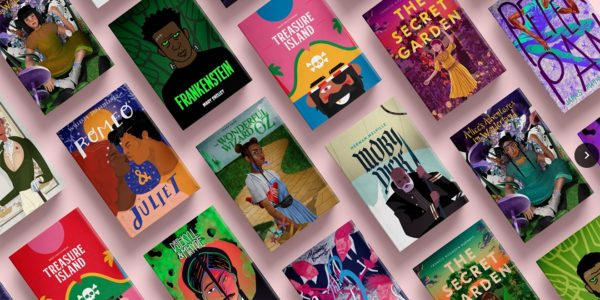
On February 3, American bookstore Barnes & Noble announced that it was teaming up with Penguin Random House to launch a series of classic books with “culturally diverse” covers. The 12 classic novels selected—including Treasure Island, Romeo and Juliet, and Moby Dick—were to feature people of color on their covers. The books were meant to go on sale by February 5 and remain on display throughout the month of February. The project was known as “Diverse Editions” and was done partly to mark Black History Month.
Barnes & Noble Fifth Avenue to launch sales of classic novels with new covers promoting diversity @amNewYork https://t.co/qidgo3Tdla pic.twitter.com/uNPbP3LJcM
— Publishers Weekly (@PublishersWkly) February 4, 2020
The news, reported by Publisher’s Weekly, was met with widespread criticism on social media, with many people expressing their disappointment at the initiative and insisting that there were better ways to promote the works of people of color—ways like actually publishing people of color. Among writers who weighed in on the controversy was Nnedi Okorafor. She regarded the project as “disgusting” and “insincere” and proffered that the solution to the lack of diversity was to publish new stories by “people of color about people of color” rather than replacing white characters with people of color.
This fake diversity nonsense (where they replace white characters with people of color) is disgusting. It is not sincere or a solution. NEW STORIES BY PEOPLE OF COLOR ABOUT PEOPLE OF COLOR is the solution.
WE get to tell OUR stories!
Stop USING us and GET OUT OF THE WAY! https://t.co/vtQYHQBfzj
— Nnedi Okorafor, PhD🕷️ (@Nnedi) February 5, 2020
https://twitter.com/ReadRebelBooks/status/1224869095331565573
Nigerian writer and Caine Prize 2017 finalist Chikodili Emelumadu retweeted the news with a gif showing three white women with black-painted faces.
https://twitter.com/chemelumadu/status/1224942526462857216
Barnes & Noble has since announced that it was cancelling the project. In a statement shared on Twitter, they revealed that the covers had not been intended to serve as a substitute for black voices but was rather created in part to raise awareness and discussions during Black History Month.
The Diverse Editions event at our @BNFifthAvenue location originally scheduled for this evening has been cancelled. Please see our statement: pic.twitter.com/jGquff9MyM
— Barnes & Noble (@BNBuzz) February 5, 2020
The Barnes & Noble controversy is yet another instance of the diversity problem in publishing. A few days ago, we published a piece by the Kenyan writer Mukoma wa Ngugi addressing the question of writing outside the scope of one’s experience. We recommend that the people at Barnes and Noble take note of the suggestions provided by Mukoma, as well as check out our list of The Top 15 Debut Books of 2019, The Notable African Books of 2019 and The Most Anticipated Books of 2020. Or Penguin can just give publishing deals to the many, many writers of color submitting manuscripts to them.








COMMENTS -
Reader Interactions